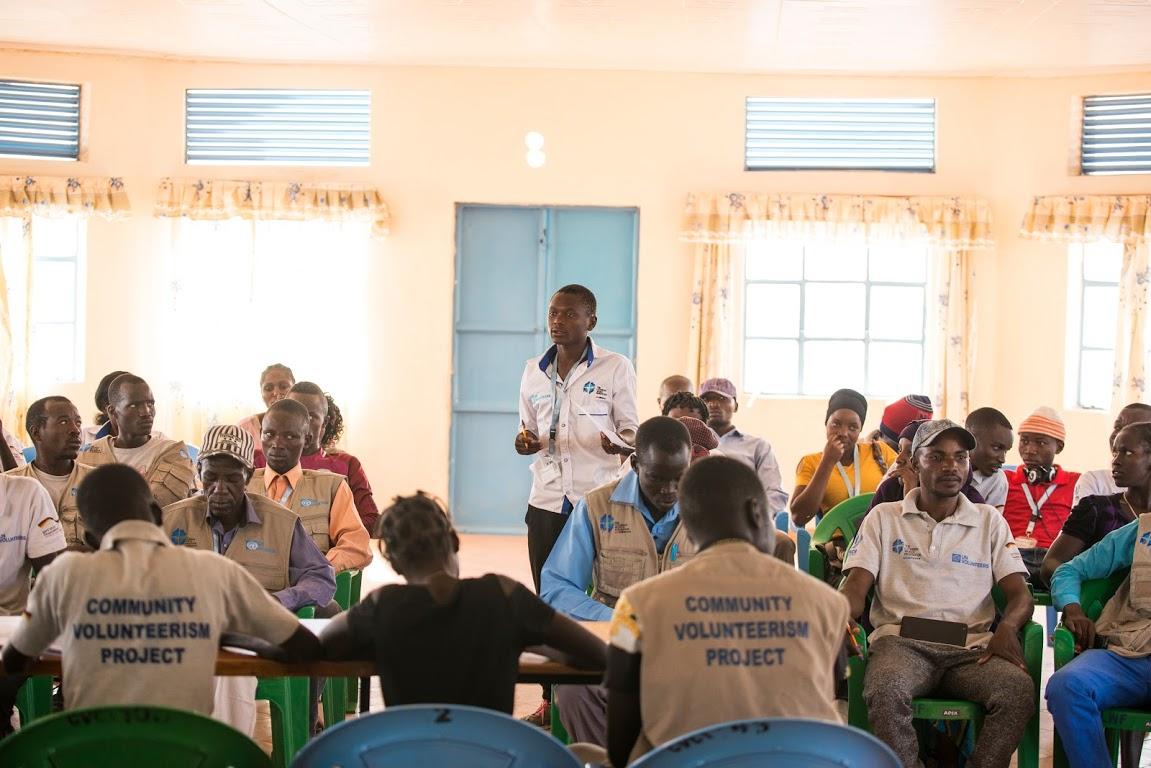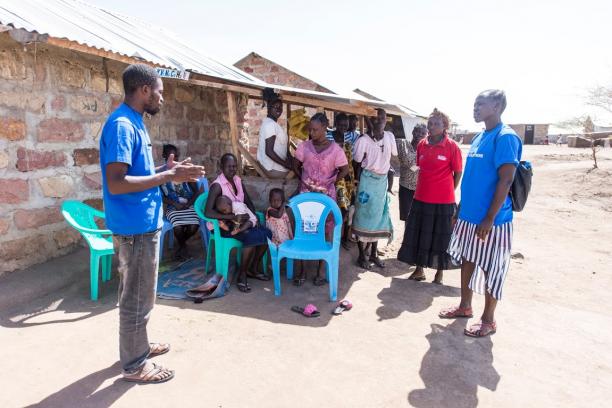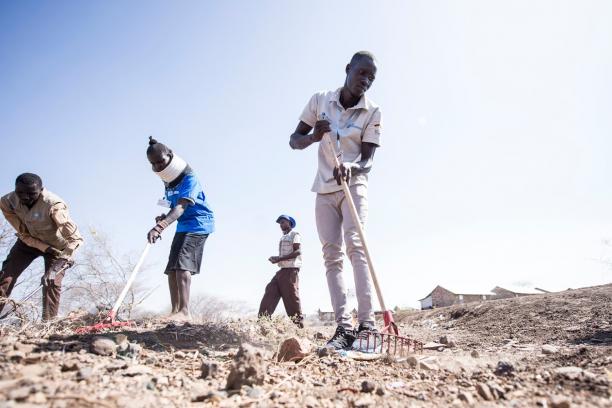
UNV UNHCR Kakuma Project
© United Nations Volunteers
The project in brief
Implemented by
United Nations Volunteers
Country
Kenya
Duration
2017-2019
Description
United Nations Volunteers (UNV) and partners, in collaboration with UNHCR, have developed and implemented volunteer initiatives with refugees and host communities in Kakuma Refugee Camp in Kenya. The project consisted of recruiting refugees from the camp and members from host communities as Refugee Outreach Volunteers. Additionally, UNV used its refugee-to-refugee volunteer modality to recruit and deploy one refugee identified in the camp as a UN Volunteer. The Refugee Outreach Volunteers served with UNHCR and were provided with the necessary capacities, knowledge and resources to contribute to addressing their own protection needs.
UNV’s volunteer assignments offered refugees the opportunity to take an active role within Kakuma Refugee Camp, by participating in community outreach and social protection activities that not only provide a safety net for the camp’s inhabitants but also contribute to their well-being and development.
Project aims
To enhance community security and refugee protection through refugee engagement, with a focus on strengthening the social cohesion between refugee and host populations.
Resources used
Funding was provided by the German Ministry for Economic Cooperation and Development (BMZ) and UNHCR.

UNV UNHCR Kakuma Project
© United Nations Volunteers
Main activities of the Good Practice
- Recruitment of Refugee Outreach Volunteers from both the refugee and the host communities to serve with UNHCR. After receiving training, they helped identify refugees at risk and in need of assistance, realized the timely management of cases and provided the necessary basic individual counseling through home visits. Volunteers were given bicycles to facilitate their mobility.
- Training of Refugee Outreach Volunteers in community issues such as public health, security, education, and sexual and gender-based violence.
Partners
- Government of Kenya, through County Government of Turkana
- German Ministry for Economic Cooperation and Development (BMZ)
- United Nations High Commissioner for Refugees (UNHCR)
- Lutheran World Federation (LWF)

UNV UNHCR Kakuma Project
© United Nations Volunteers
Challenges and how they were overcome
This project piloted innovative approaches to bringing together refugee and host communities and had to address the element of mistrust at the beginning of the project. The refugees at Kakuma are from several different countries, leading to cultural conflict that affected their interest in participating in project activities.
In addition, tensions and conflicts between the local Turkana people and the refugee community have been present for years and have been further exacerbated by environmental stress, limited resources, and a feeling that refugees are economically privileged (as they receive aid).
Against this background, setting up and starting the project implementation took longer than expected.
These challenges were addressed through advocacy and outreach efforts among the two communities.
Results of the Good Practice
At its completion, the project has mobilized and trained 146 Refugee Outreach Volunteers (11 from the host communities, 135 from Kakuma Refugee Camp).
These volunteers have formed four women’s groups and four youth groups that engage in community development activities related to health, water and sanitation, sexual and gender-based violence, entrepreneurship, education, environment and sports.
Two community volunteer centers were established to host joint activities for the refugee and host communities, offering a space of creativity and assembly that brings people together for workshops and events, thereby enhancing compassion and mutual understanding.
The project ensured a peaceful, sustainable and secure co-existence within the refugee community and with the host community around the Kakuma Refugee Camp, promoting effective coordination on issues of conflict and security.
Throughout the Kakuma Refugee Camp, the project has strengthened the perception that volunteerism opens powerful pathways through which people can counter exclusion and engage on issues that affect their lives.

Community volunteers in Kakuma Refugee Camp working with host community (in Turkana traditional necklace) during a community clean up exercise through the UNHCR UNV Refugee Outreach Volunteers Project.
© United Nations Volunteers


